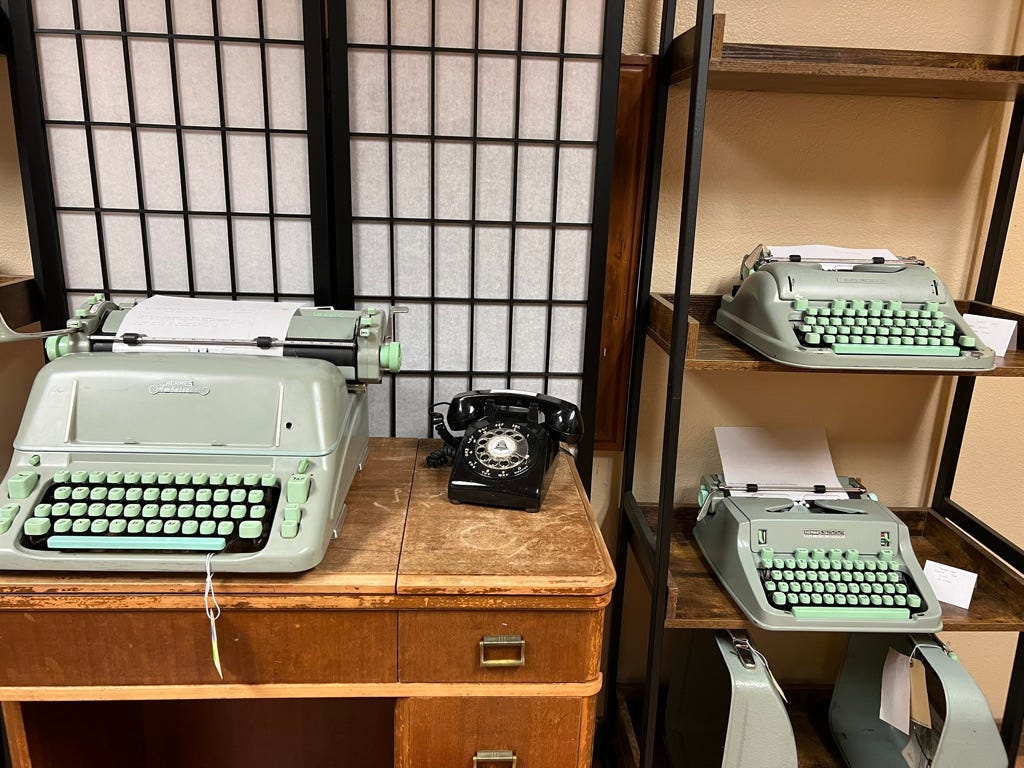One definition of writing: there are 37 different kinds of patience required.
Let’s start off with the good kind. “One of the strange laws of the contemplative life,” the monk, mystic, and poet Thomas Merton said, “is that in it you do not sit down and solve problems: you bear with them until they somehow solve themselves. Or until life solves them for you.”
I love this quote not only as a rule for writing, where, when you hit a wall, it’s often best not to force things—not to even try to nudge things—but to surrender to the obstacle, let the airs of other worlds in, listen to the stirrings within yourself, light the incense of your senses, and somehow trust that with a meandering rumination the problem might solve itself.
This can apply to many a conundrum, it turns out. Willful attention to many life matters is over-rated.
Like a surfer surrendering to a wave.
We should all surrender more.
As Rainer Maria Rilke put it in Letters to a Young Poet:
“To let each impression and each germ of a feeling come to completion wholly in itself, in the dark, in the inexpressible, the unconscious, beyond the reach of one’s own intelligence, and await with deep humility and patience the birth-hour of a new clarity: that alone is living the artist’s life: in understanding as in creating.”
But I’m impatient
I’ve been struggling of late with many of the 36 other kinds of patience required for writing, though.
I find myself waiting a lot lately. Waiting silently. Waiting obediently. I’ve heard patience defined as simply unexpressed impatience, and that is a definition that increasingly applies to me.
It’s tough to wait. Our whole culture these days is built around things happening quickly. Press a button, click a link. Boom.
I’m waiting for word on a book that’s been on submission for months.
I’m waiting for my agent to read the novel I sent her (in another season now).
I’m waiting on myself to find the time and focus to truly dive into my memoir.
These are all good things. I have a much better kind of impatience than the welter of impatience I felt in my 30s, when I had carpal tunnel so bad that I couldn’t hold a book, let alone write one. And I have a much better kind of impatience than the impatience I felt for the first 30 years of my writing life, because I didn’t publish a book before I was 50, late for me since when I started out as a writer at 20, I adhered more to the “publish-a-novel-of-genius-by-the-time-you’re 25” camp of writing (oops, missed that deadline).
Here’s the thing: everything takes way too long in writing and publishing. The things that seem like they should take days, or weeks at the most, sometimes take months. And maybe even years.
People read slowly (after your submission slowly oozes up the queue of submissions). Then they make decisions slowly. Then they edit slowly. Then they publish slowly.
I started my novel, The Letters, in 2016. Assuming it goes on submission in the coming months, it probably won’t find an editor until later in the fall, and then its publication schedule might be for a release in the winter of 2026. That’s 10 years of 37 different kinds of waiting.
The process is set up for creatures with eternal lives, endless time, except we’re not. I’ve calculated the rough number of heartbeats I have left. I’m all too aware of the finiteness of my time. I’m stuck in a traffic jam and I can’t even see the exit.
And this is the perfect metaphor for the publishing process: stuck in a traffic jam, without recourse or agency, at the mercy of other forces. A tornado of them.
Before the road rage starts …
Impatience can cause wise people to do foolish things. While I sit in my car in this sticky smog of waiting for the yays and nays and hmmms of publishing, I’m telling myself to be patient towards my impatience.
When has impatience served me well in a traffic jam?
I’m trying to adjust my seat belt, turn the radio dial to a better station, control what I can control, and return to the joy of Thomas Merton’s ruminative patience. The search for meaning. The delight of trying to capture this crazy, crazy mess of a life in a few graceful words.
We must sit with our thoughts, sit with our words, without a clock ticking anywhere near us. Maybe the traffic jam can even somehow be an aid to this, no matter its discomforts. I think of John Cage, who imagined that the beeping horns outside his New York City apartment were part of an orchestra.
“I do not so much write a book as sit up with it, as with a dying friend,” said Annie Dillard.
Our work deserves the reverence of a dying friend. We must sit with it. We must honor it. We must protect it. We must know that its life is much more important than any damn editor’s opinion. It’s ours and it will always be ours.
[I’d love to hear about a moment of impatience you’ve experienced, so please share in the comments. I’d actually like to make that list of 37 different kinds of patience.]
Please
I take a lot of pleasure in writing this newsletter each week, largely because of the comments I receive from readers, the dialogue it sparks. But it is also a fair amount of work.
I believe that writers should be paid for their work, so if you can pay, I appreciate it if you can become a paying subscriber. If you can’t pay, please support me in other ways, such as sharing this newsletter with others or leaving me a comment.
By opting to pay just $5 per month, you’re saying that each issue gives you at least $1 worth of value.
I hope that’s true!
Because a quote
“Being an artist means, not reckoning and counting, but ripening like the tree which does not force its sap and stands confident in the storms of spring without the fear that after them may come no summer. It does come. But it comes only to the patient, who are there as though eternity lay before them, so unconcernedly still and wide. I learn it daily, learn it with pain to which I am grateful: patience is everything!”
—Rainer Maria Rilke
Because I’m available for book coaching and editing!
I’ve been a writer, editor, and publisher. I’ve also written extensively about creativity in numerous books and articles, talked with 300 writers on my podcast, Write-minded, led the largest writing event in the world, National Novel Writing Month, and …. well, I’ve just immersed myself in all things writing for a lifetime.
I bring this wisdom and more to my one-on-one work with writers.
Because end notes
What I’m reading: The Sympathizer, by Viet Thanh Nguyen. Viet seems to keep coming into my life. My son, Jules, read The Sympathizer when it first came out, and he loved it. My agent actually fought for The Sympathizer to be published. I’ve admired his thoughts in interviews. And … I’m going to interview him on my podcast, Write-minded, on Tuesday. I can’t wait.
What I’m watching: Well, I could say Hacks, because I’m always watching Hacks. But I’m also watching The Sympathizer, which just came out on Max (see above).
What I’m listening to: My daughter, Simone, just recommended “Str8 Outta Mumbai” by Jai Paul, which I added to my ultimate road-trip playlist on Spotify. Making my playlist ranks with getting a Grammy, so I let Jai Paul’s team know in case they want to do press around it.
What I’m photographing: I taught a class in Port Townsend last weekend (let’s hear it for the Imprint Bookstore!). And, lo and behold, I stumbled onto a typewriter store, Type Townsend.
Here’s one thing to know about me: I was in one of the last classes to go to college with a typewriter in hand. I typed all of my early stories. I didn’t get a word processor, as they were called, until I was 25. My process: write a draft by long-hand; type it up; revise; type it up. Again and again sometimes.
My cheeks were speckled with Wite-Out.
I’ve never seen a typewriter that wasn’t calling to me.







I am finding that writing my memoir is teaching me about patience—the kind involved when maybe the right timing has to do with forces outside of you.
At the moment I feel like all 37 kinds of patience are in a depleted well. I teach, which requires patience with students and the learning process. I take care of my 88-year-old father, whose failing cognitive abilities and protracted divorce require more patience than I can ever actually manifest. There's the usual patience required for life--those traffic jams, etc. And then we come to the patience required for my writing--the actual writing and the efforts to get published. I can manage patience for some of this but not all of this all the time.